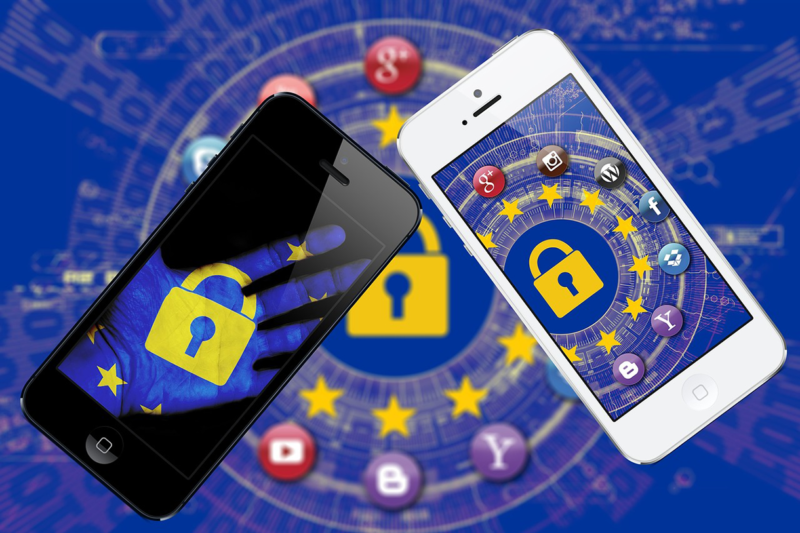
In today’s digital age, personal data is more vulnerable than ever. From social media accounts to online shopping and banking, we share vast amounts of information on the internet daily. Unfortunately, this makes us susceptible to data breaches, identity theft, and other cybercrimes. Protecting your personal data is crucial for maintaining privacy and security. In this article, we’ll explore practical steps you can take to protect your personal data in the digital age.
1. Use Strong, Unique Passwords
One of the simplest yet most effective ways to protect your personal data is by using strong, unique passwords for each of your accounts. Weak or reused passwords make it easy for hackers to gain access to your personal information.
- Create Complex Passwords: Use a combination of upper and lowercase letters, numbers, and special characters. Avoid using easily guessed information like your name, birthdate, or common words.
- Use a Password Manager: Password managers, such as LastPass or Dashlane, can help you generate and store strong, unique passwords for all of your accounts.
- Avoid Reusing Passwords: Never use the same password across multiple accounts. If one account is compromised, hackers can access your other accounts as well.
2. Enable Two-Factor Authentication (2FA)
Two-factor authentication adds an extra layer of security to your accounts by requiring a second form of verification in addition to your password.
- How It Works: With 2FA enabled, after entering your password, you’ll need to provide a second form of verification, such as a code sent to your phone or email, or a fingerprint scan.
- Where to Enable 2FA: Enable 2FA on all accounts that offer it, especially for sensitive accounts such as email, banking, and social media.
- Security Boost: Even if someone manages to steal your password, they won’t be able to access your account without the second factor of authentication.
3. Be Cautious of Phishing Scams
Phishing scams are a common tactic used by cybercriminals to trick individuals into revealing personal information, such as passwords or credit card details. These scams often come in the form of fake emails, messages, or websites that appear legitimate.
- How to Spot Phishing: Look for warning signs such as unsolicited requests for personal information, generic greetings (like ‘Dear Customer’), poor grammar, or suspicious links.
- Verify Before You Click: Never click on links or download attachments from unknown or suspicious sources. Always verify the legitimacy of the sender before providing any personal information.
- Report Suspicious Emails: If you receive a phishing email, report it to your email provider and delete it immediately.
4. Limit the Personal Information You Share Online
Think carefully before sharing personal information online, especially on social media. Cybercriminals can use publicly available information to steal your identity or access your accounts.
- Review Privacy Settings: Regularly check the privacy settings on your social media accounts to control who can see your posts and personal information.
- Avoid Oversharing: Avoid posting sensitive information, such as your full name, address, phone number, or details about your daily routine.
- Be Aware of Social Engineering: Scammers may use the information you share online to trick you into revealing more personal data. Be cautious when interacting with people or businesses online.
5. Keep Your Software and Devices Updated
Keeping your software, apps, and devices up to date is essential for protecting your data. Software updates often contain security patches that protect against the latest threats.
- Enable Automatic Updates: Set your devices and apps to update automatically to ensure you’re always protected with the latest security patches.
- Update Your Operating System: Regularly updating your computer’s operating system helps protect against vulnerabilities that cybercriminals could exploit.
- Use Antivirus Software: Install reputable antivirus software to detect and block malware, viruses, and other cyber threats.
6. Secure Your Internet Connection
Unsecured internet connections can leave your personal data vulnerable to hackers. Use secure, encrypted connections whenever possible to protect your information.
- Use a VPN: A Virtual Private Network (VPN) encrypts your internet connection, making it difficult for hackers to intercept your data. Use a VPN, especially when connected to public Wi-Fi networks.
- Secure Your Wi-Fi Network: Protect your home Wi-Fi network with a strong password, and consider hiding your network’s SSID (the name of the Wi-Fi network) to make it harder for others to find.
- Avoid Public Wi-Fi for Sensitive Transactions: Avoid conducting sensitive activities, such as online banking or shopping, over public Wi-Fi networks unless you’re using a VPN.
7. Regularly Monitor Your Accounts
Regularly checking your accounts for unusual activity is an important step in catching potential security breaches early. The sooner you identify suspicious activity, the quicker you can take action to prevent further damage.
- Check Bank Statements: Review your bank and credit card statements for any unauthorized transactions. If you spot anything unusual, report it to your bank immediately.
- Monitor Credit Reports: Regularly monitor your credit reports to catch signs of identity theft, such as new accounts opened in your name.
- Set Up Alerts: Many banks and financial services offer transaction alerts that notify you of any suspicious activity on your accounts.
8. Back Up Your Data
Backing up your important data ensures that even if your device is compromised or lost, you won’t lose access to your files and personal information.
- Use Cloud Storage: Services like Google Drive, Dropbox, and iCloud offer secure, cloud-based storage options for backing up your data.
- External Hard Drives: In addition to cloud storage, consider using an external hard drive to back up your files for extra protection.
- Automate Backups: Set your devices to automatically back up important data to avoid forgetting to do it manually.
Conclusion
In today’s digital world, protecting your personal data is more important than ever. By using strong passwords, enabling two-factor authentication, being cautious of phishing scams, and securing your internet connection, you can significantly reduce your risk of falling victim to cyber threats. Additionally, regularly monitoring your accounts and keeping your software updated will help you stay one step ahead of potential hackers. By following these steps, you can safeguard your personal data and maintain your privacy in the digital age.







